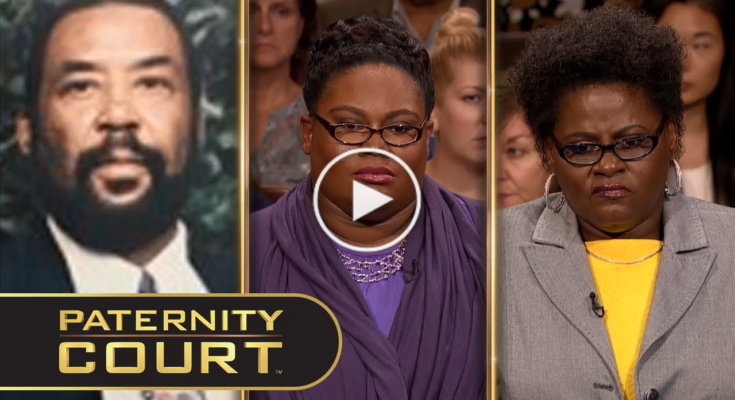In the case of “Aiken v. Aiken,” the courtroom becomes the battleground for uncovering the truth surrounding Brittany Aiken’s paternity. Brittany emotionally declares, “For years, my mama’s been lying to me back and forth about who my daddy is. And I’m hurt, and I’m tired, and I need to know, ‘Who is my daddy?'” The court faces the challenge of resolving this heart-wrenching paternity fraud accusation that has haunted Brittany’s life for three decades.
Brittany Aiken explains that her mother, Bonnie Aiken, has provided conflicting stories about her father’s identity, causing immense confusion. With tears in her eyes, Brittany reveals, “I remember, the bed broke down… We kept on doing it. That’s how I deceived her or conceived her that night.” Bonnie, however, contests Brittany’s version of events, stating, “Mr. Jenkins had told me that, ‘Your mom said that you’re not my daughter.’ I ain’t never told you that.”
Brittany confronts her mother about the inconsistencies and seeks answers about her biological father. Bonnie acknowledges that Thomas Aiken was a possible candidate but admits, “I didn’t know that because of her mother. About a month ago. During the time, she got pregnant with her, I was incarcerated.” Brittany’s search for truth becomes a labyrinth of emotions and doubts as she grapples with the uncertainty of her identity.
The court orders a DNA test using a sample from James Jenkins, the closest biological relative of Henry Jenkins Jr., who Brittany believed to be her father. The devastating results are revealed: “Mr. Jenkins and Miss Brittany Aiken… Are not related.” Brittany’s world crumbles, and she is left emotionally drained.
Judge Lake emphasizes the significance of the love and care Brittany received from Henry Jenkins Jr., regardless of the DNA results. “You were so much more blessed than many,” the judge states compassionately. Brittany’s relationship with Henry Jenkins Jr. remains cherished and valued, even in light of the paternity dispute.
Judge Lake encourages Brittany to seek counseling to help cope with the revelations and continue her journey of self-discovery. The court expresses empathy for Brittany’s emotional turmoil throughout the process, stating, “We will be here” to support her.
The courtroom atmosphere becomes charged with emotions as Brittany and Bonnie confront their past and present realities. Brittany expresses her longing to know the truth, saying, “I just want to know who my daddy is.” Bonnie grapples with the consequences of her past actions.
Thomas Aiken remains composed and compassionate, expressing his willingness to support Brittany, regardless of the test results. “If she needs some help from me, anything I can do for her, I would do it,” Thomas declares, showcasing his commitment.
The case of “Aiken v. Aiken” serves as a poignant reminder of the complex emotions and struggles surrounding paternity disputes. Brittany’s unwavering determination to uncover her true identity and seek the truth exemplifies the innate human desire to know one’s roots.
While the DNA test provides conclusive evidence, the court acknowledges that the emotional significance of familial bonds should not be underestimated. Regardless of biological ties, the love and care Brittany received from Henry Jenkins Jr. and his family shaped her life and identity.
In conclusion, “Aiken v. Aiken” highlights the importance of empathy, compassion, and guidance in the legal pursuit of paternity truth. The court’s support for counseling emphasizes the need for emotional well-being during these emotionally charged proceedings. As Brittany embarks on her journey of self-discovery, may she find solace and strength, knowing that the truth lies in the love and support she received from those who raised her. “Just lies and deceit, I’m tired,” Bonnie exclaims, capturing the emotional toll this case has taken. The court remains steadfast in its commitment to the pursuit of truth and justice, no matter how challenging the journey may be.



